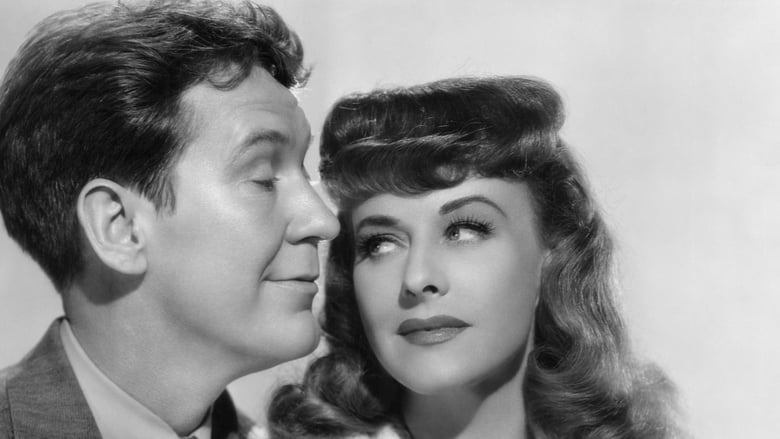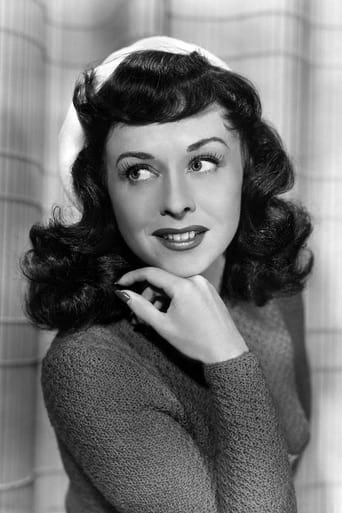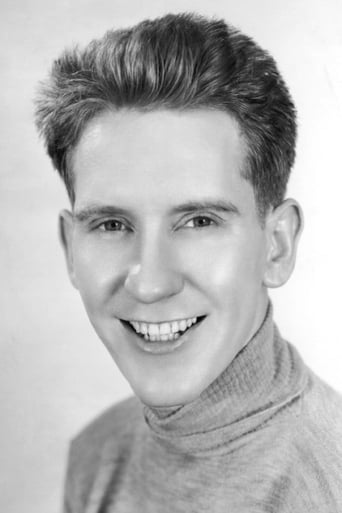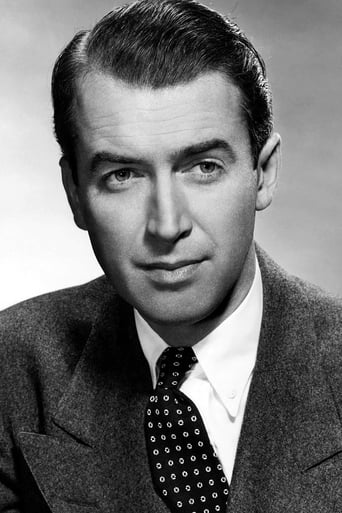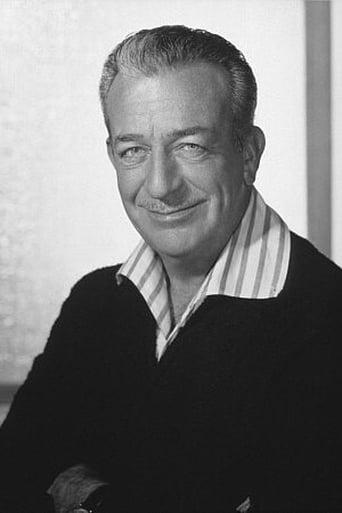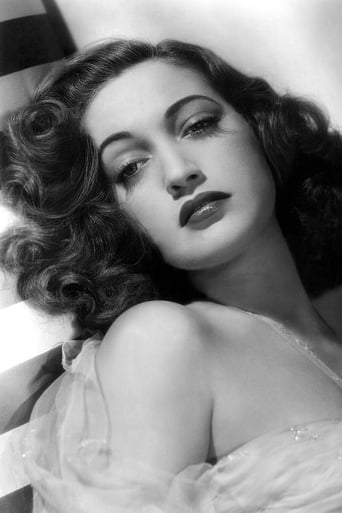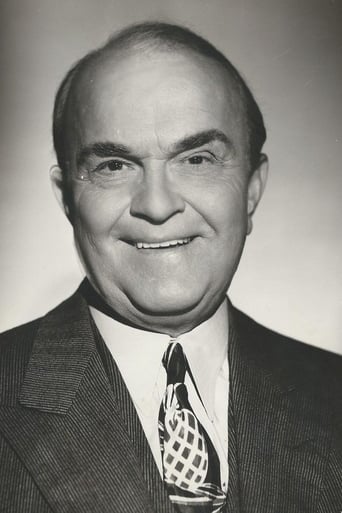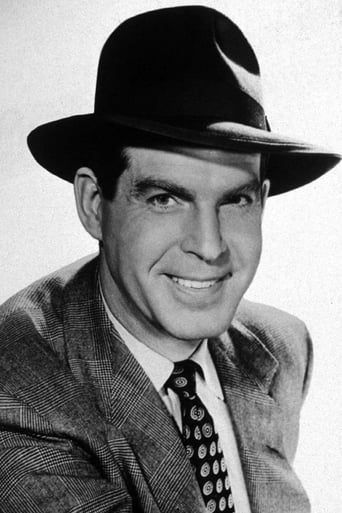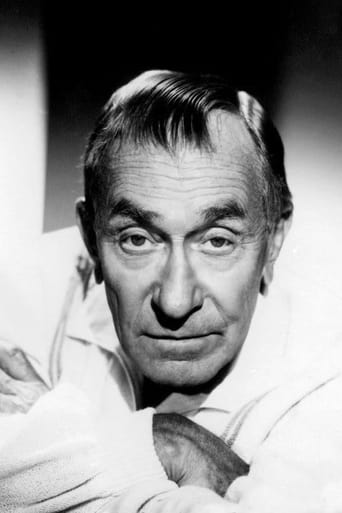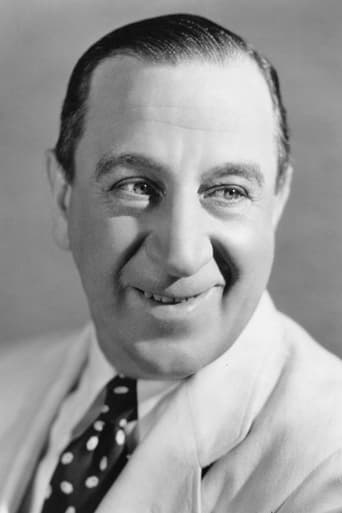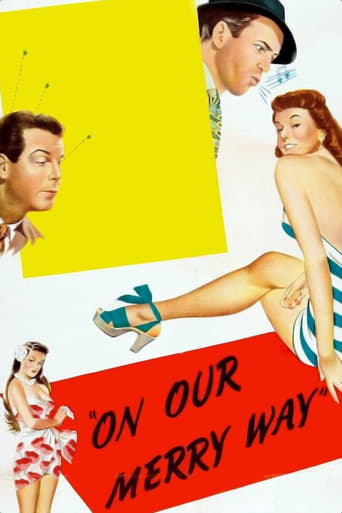
Oliver Pease gets a dose of courage from his wife Martha and tricks the editor of the paper (where he writes lost pet notices) into assigning him the day's roving question. Martha suggests, "Has a little child ever changed your life?" Oliver gets answers from two slow-talking musicians, an actress whose roles usually feature a sarong, and an itinerant cardsharp. In each case the "little child" is hardly innocent: in the first, a local auto mechanic's "baby" turns out to be fully developed as a woman and a musician; in the second, a spoiled child star learns kindness; in the third, the family of a lost brat doesn't want him returned. And Oliver, what becomes of him?
Similar titles
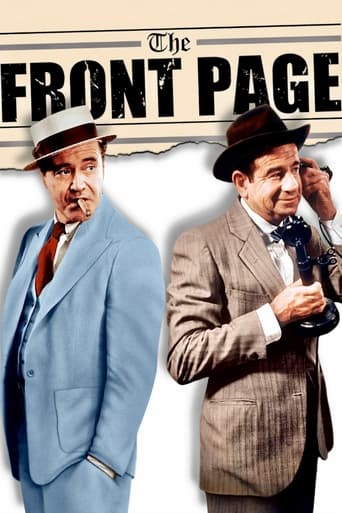
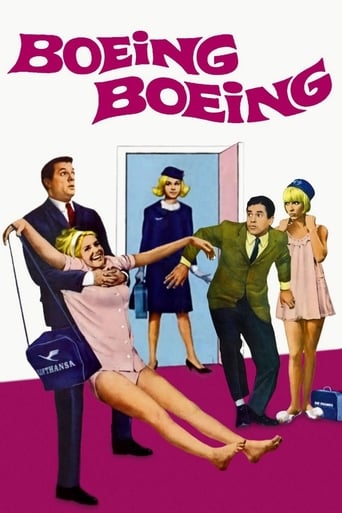
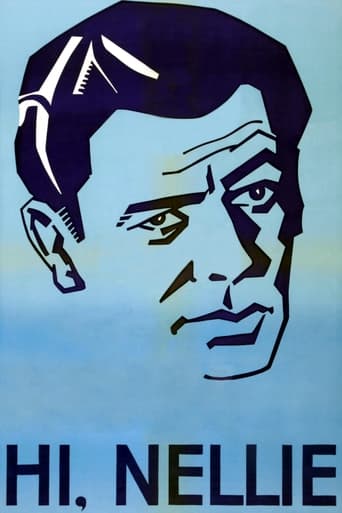
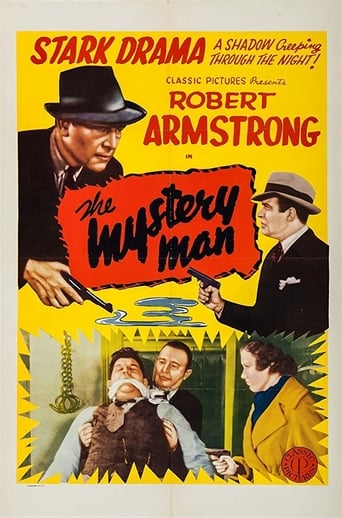

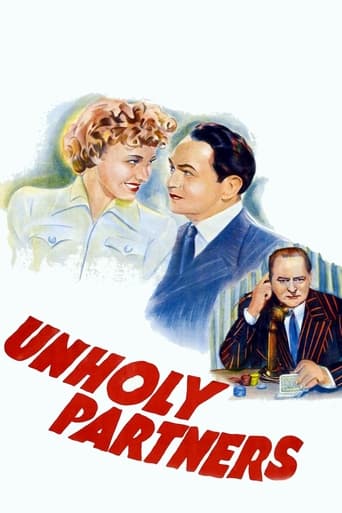
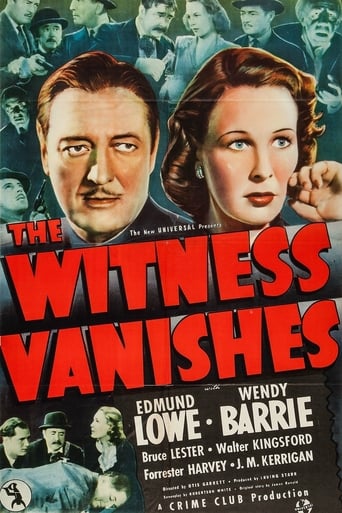
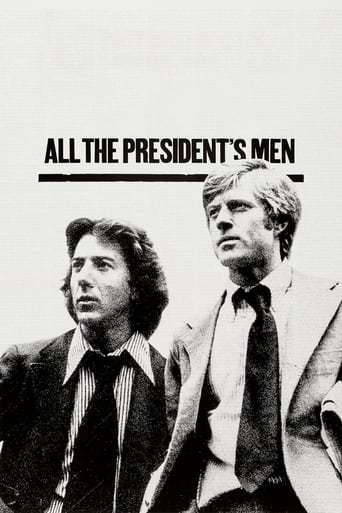
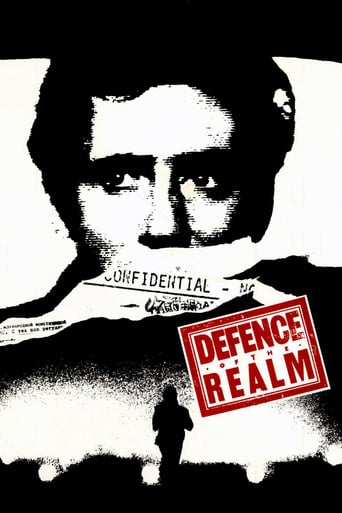
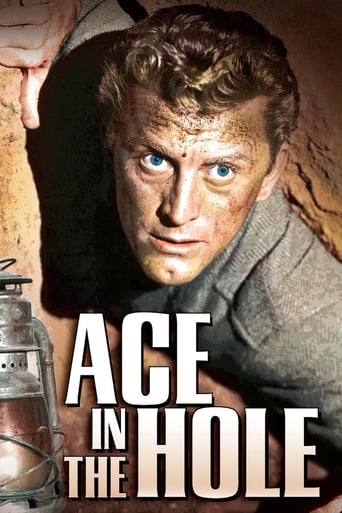
Reviews
Just perfect...
Good movie but grossly overrated
Wow! What a bizarre film! Unfortunately the few funny moments there were were quite overshadowed by it's completely weird and random vibe throughout.
At first rather annoying in its heavy emphasis on reenactments, this movie ultimately proves fascinating, simply because the complicated, highly dramatic tale it tells still almost defies belief.
This review is for the version without the Charles Laughton sequence, as this was the one shown by Turner Classic Movies recently.The film stars and was co-produced by Burgess Meredith. Considering that he mostly got supporting roles after this and only a few other producer credits, it is probably safe to assume this film was responsible for this.The film consists of various small films that are tied together by an overall theme. You see, Meredith wants to get a job working as a reporter and each time he interviews someone, their story is dramatized. The question he asks each of the people is "how did a child influence your life?". Surprisingly, the vignettes have various big-name Hollywood stars, such as Jimmy Stewart, Henry Fonda and Dorothy Lamour--perhaps Meredith and his wife/co-star Paulette Goddard got a lot of their friends to be in the film.The first stars Fonda and Stewart. It's about a small-time traveling band that is stranded and puts on a talent show to get the money to get their bus fixed. However, the contest is fixed, as the mayor only let them put on the show if his son (who is a no-talent) is given the award. The film features Alfalfa Switzer (from Our Gang) as the no-talent as well as a surprise cameo at the end by big band leader, Harry James. The film is supposed to be kooky and was an odd waste of the talents of Stewart and Fonda, as the acting and writing were too broad to be taken seriously.The next stars Dorothy Lamour and Victor Moore (an odd combination). They are both struggling actors who have a run-in with a bratty child actor. The kid deliberately ruins their scene they are working for in the film and she thinks this is funny. However, when Moore and Lamour are fired, the kid feels bad and vows to help them with a screen test. The producers love Lamour but are less thrilled about Moore. In the end, however, she hires Moore as her agent. The segment ends with a long dance number. Yes, it did relate to Meredith's question but the style seemed odd and ended very abruptly. Also, the song and dance number seemed out of place.The final segment starred Fred MacMurray and William Demarest (who, you may remember, co-starred together on "My Three Sons" on TV). The film begins with the two being thrown out of town by the cops. The are a couple of grifters in search of some new pigeons (i.e., con-men who want to cheat some unsuspecting people). Oddly, their first potential victim is a little kid with a piggy bank! The kid turns out to be a devilish little prankster, as he makes their lives miserable. In many ways, the story is a lot like a slight reworking of O. Henry's "The Ransom of Red Chief" and the film makers neglected to credit him for the story idea. It is fun watching the kid tormenting the two men but I just wished they'd stuck closer to the original story or just made a film of the O. Henry story--and not all the rest of the vignettes.In the end, Meredith writes his human interest story and goes to see the editor--at which point, the response is not at all what Meredith had expected! But it all works out fine in the end.Overall, not a terrible idea for a film but the film never worked because the first two stories didn't work out well. The biggest negative is bad writing and the only good part was stolen from a famous writer (William Sydney Porter, also known as O. Henry). It's a curious film and is watchable but don't expect it to be much more than a time-passer.
As the "Trivia" section states, Charles Laughton was in the original version of this film under its title "A Miracle Can Happen". His was a sequence of 20 minutes or so which came between the Fonda/Stewart story and the one with Fred MacMurray which ended the movie. During the war, Laughton had taken to reading from great works of literature, including the Bible, to invalided US servicemen. He continued to give reading tours after the war and his appearance in "A Miracle Can Happen" was clearly an attempt to put one of his Bible readings on film. He played a washed-out minister who bores his congregation to tears, but one rainy night a small boy asks Laughton to visit his sick father. In an attempt to boost the dying man's spirits, Laughton rises to the occasion with an over-the-top delivery of the Saul and David story that completely revitalises the father. It then turned out that the little boy who invited Laughton in, but who has now disappeared from the scene, had died some years earlier. So, as Laughton told Meredith at the end of the sequence, "a miracle happened." For whatever reason, the Laughton sequence was deleted from the US release but not before prints has been sent abroad to other countries. Consequently, it has long been known that, for example, a Spanish version of "A Miracle Can Happen" - with Laughton and all the others dubbed into that language - has been seen on TV in Spain and is now available there on DVD, complete with the original English dialogue.With Laughton having been deleted, the Dorothy Lamour sequence was added in as a replacement, and the film was duly re-titled "On Our Merry Way." I agree with the sentiments expressed by others who find this film an embarrassment all round. Fonda and Stewart are no masters of farcical comedy and neither are any of the other principals. As for Laughton in the original film, his hamming up of the Bible story has to be seen to be believed. Nevertheless, both versions are of some interest because of the talents involved but I agree with anyone who says that once you've seen either version you're not likely to want to see them again!
This three-vignettes-in-a-frame movie is not all bad. Indeed, the first segment features Henry Fonda and James Stewart in a brilliant comic pas de deux which leaves you wondering why they didn't become a cinematic pair. Given that the plot-ette they work with is unremarkable, their joint performance is even more of a miracle and a treat. Also fun is the little jazz score, which features not only Stewart doing his own tasteful piano comping, but also a guest appearance by Harry James, who not only provides the behind-the scenes music of the trumpet-playing "babe" but actually puts his mug in as well.The second story is a bit weaker, though Dorothy Lamour does a song and dance number that sends up contemporary Hollywood clichés in a wittily sophisticated manner.The last sequence, however, is truly lame: the pacing is slow and all the actors (especially child actor David Whorf) are annoying. The zany Hugh Herbert nicely finesses a small role but his little performance can't save the segment.The frame itself is also uninspired, but not so deadly that it drags the film down.Had the last two segments been as marvelous as the first, this entire movie would have been a classic. But in any case, you simply must see it for the Steward-Fonda collaboration. They command the film from the moment the camera turns on them and never disappoint.
Before I committed to buying the DVD of "On Our Merry Way," I got it from Netflix and happy I am that I did so, for it's not likely I'd ever want to watch it again. "On Our Merry Way" is an anthology film in the manner of "O. Henry's Full House," but while the latter has a no-nonsense framework with John Steinbeck introducing the episodes, "On Our Merry Way" uses the gimmick of Burgess Meredith talking directly to the camera every so often. It doesn't work; it seems more like a vanity project for Meredith and his then wife Paulette Goddard.Nor do the stories work. They are shaggy dog stories that bore you long before they reach a conclusion. The Henry Fonda-James Stewart and Fred MacMurray-William Demarest episodes are simply not funny. "On Our Merry Way" is full of overacting (especially from Carl "Alfalfa" Switzer) and shtick (from Victor Moore and Hugh Herbert). Dorothy Lamour, on the other hand,comes off extremely well both as an addle-pated secretary and then with a song that satirizes her own career; for Lamour it's a triumph over inferior material.John O'Hara is credited for one of the stories, O. Henry is not, even though his "The Ransom of Red Chief" serves as the basis for the MacMurray-Demarest episode; for comparison, watch the Fred Allen-Oscar Levant take on the same story in "O. Henry's Full House." It's only minimally better but it moves faster.It's inconceivable to me that so many great directors, credited or un-, would produce such a mess.One can't help be grateful to Kino for clearing the copyright problems which had long kept the film in limbo; after all, we do want to preserve the work of our great stars, no matter how bad. But once our curiosity is satisfied, "On Our Merry Way" becomes a shelve-it-and-forget-it film.For a much better pairing of Meredith and Goddard, I'd recommend Jean Renoir's English-language version of "The Diary of a Chambermaid."
Top Streaming Movies











